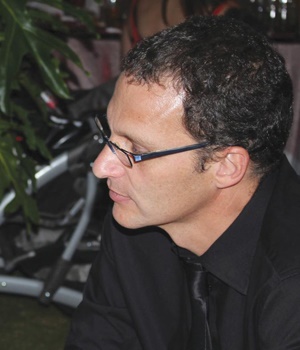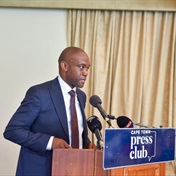
Archbishop Emeritus Desmond Tutu is a man of joy, deep empathy for the poor and suffering, fearless in the face of oppressive power. A giant among men, he carries these and many other meritorious credentials. He is from a small school of the best Christianity had to offer during apartheid, unequivocal in his condemnation of the former regime. This in stark contrast to Christians who were complicit – either by show of support or silence – during those oppressive times.
Without going into the deeper theological understanding, Tutu’s position as an archbishop is that of an apostle. A bishop is the foremost representative of Jesus Christ. This is comparable to the role of the president vis-à-vis the Constitution, and may be loosely defined as follows: “A bishop must uphold, defend and respect … the teachings of Jesus … as the supreme law.” Like the president, he cannot choose where and when to flout this prescription. And a bishop cannot claim a personal view and promulgate it to the world.
So, this article questions another characteristic of Tutu. He strives, commendably, for “fullness of life” and joy, but part of his endorsements cause the destruction of life and point us to the worst in humanity. Tutu is an ardent supporter – now advocate – of euthanasia. He also supports abortion as a choice. How do we reconcile his endorsement, as a Christian bishop, of these?
The arguments for and against these two contemporary challenges are well documented. Tutu is surely aware of them. These include stories of people euthanised without having had a say in their death, as well as vivid images of an aborted foetus.
North Gauteng High Court Judge HJ Fabricius, in his 2015 euthanasia judgment – Stransham-Ford v Minister of Justice and Correctional Services – is a case in point. As part of his ruling, Fabricius said the prohibition on assisted suicide in common law did not accord with the right to human dignity, freedom and security protected by the Constitution. He alluded to the status of a foetus as a “person” or “nonperson” by saying: “One can choose one’s education, one’s career, one can decide to get married … one can have children and one can abort children.”
Judge Fabricius did not obfuscate the obvious with semantics. To abort a foetus is to abort a child. It is to choose for or against the right to life of the child.
Exclusive rights over the life of another may be fair from a secular and humanist point of view. Such rights transport us to ancient Greece and Rome, where humanism was lauded. Like them, contemporary societies uphold absolute rights over the life of the child. This is a major problem for Christianity.
In his same ruling, Judge Fabricius dealt with the euthanasia argument in terms of “sanctity” versus “quality” of life: “I [Fabricius] agree also that sacredness of the quality of life should be accentuated rather than the sacredness of life.”
On the face of it, “quality of life” seems a reasonable argument for euthanasia. Who am I to tell someone what they should or should not do with their own life? The problem arises when the right over one’s choice to die is subverted and transferred to another, be it a parent, partner, doctor, etc.
Studies have consistently found that laws trying to protect the innocent are circumvented or simply changed to allow for non-voluntary euthanasia. This legal evolution occurs as society becomes increasingly comfortable with euthanasia, or less resistant to it.
Belgium recently updated its laws to allow for voluntary euthanasia for all ages – striking down the age limit of 18. The Netherlands now “allows” for non-voluntary euthanasia of infants.
How can a person of Tutu’s stature as a foremost representative of Christianity hold positions in favour of euthanasia and abortion? His exhortations influence decisions and practices the world over. His courage and zeal inspire many. Many find solace in his defence of their views on choice; many will prematurely stop breathing, or simply never take a breath. Tutu is both grace-ful and disgraceful. He is the outstanding example of our fallen natures; of what is the best and the worst in us. God help us.
Mayer provides professional services to the insurance industry, is a part-time social activist and has a degree in theology from Saint Augustine College (South Africa’s Catholic University)
TALK TO US
Would you consider assisted dying and do you believe those left with making such a decision on your behalf, can make the right one?
SMS us on 35697 using the keyword JUDGE. Please include your name and province. SMSes cost R1.50




 Publications
Publications
 Partners
Partners






















